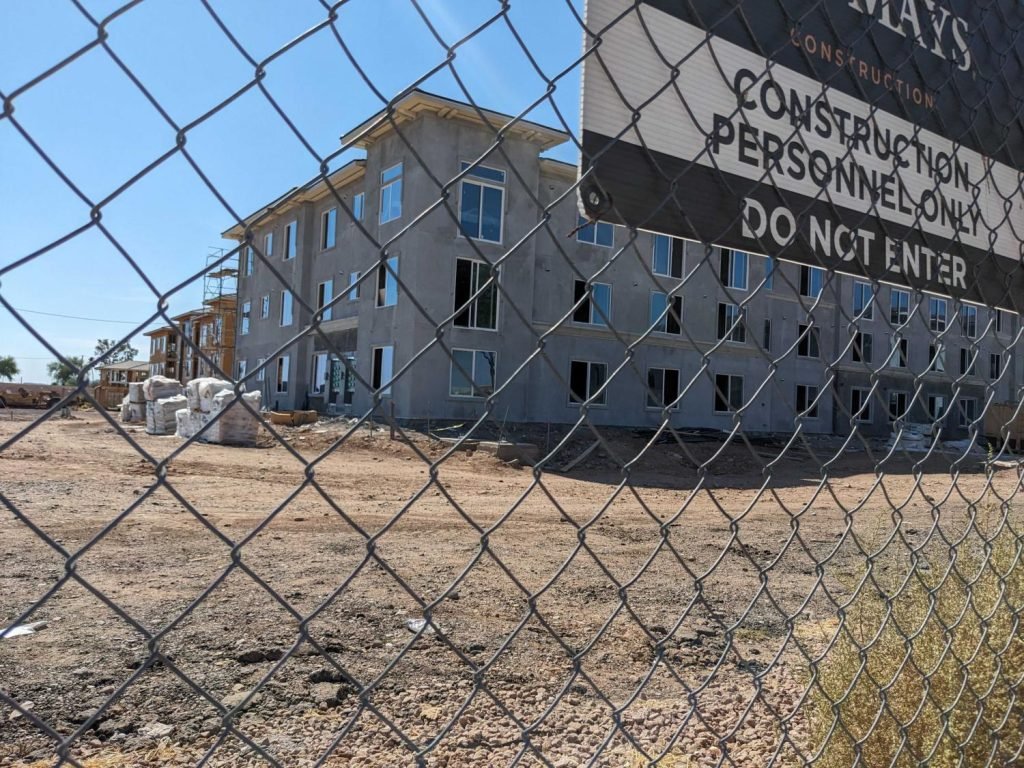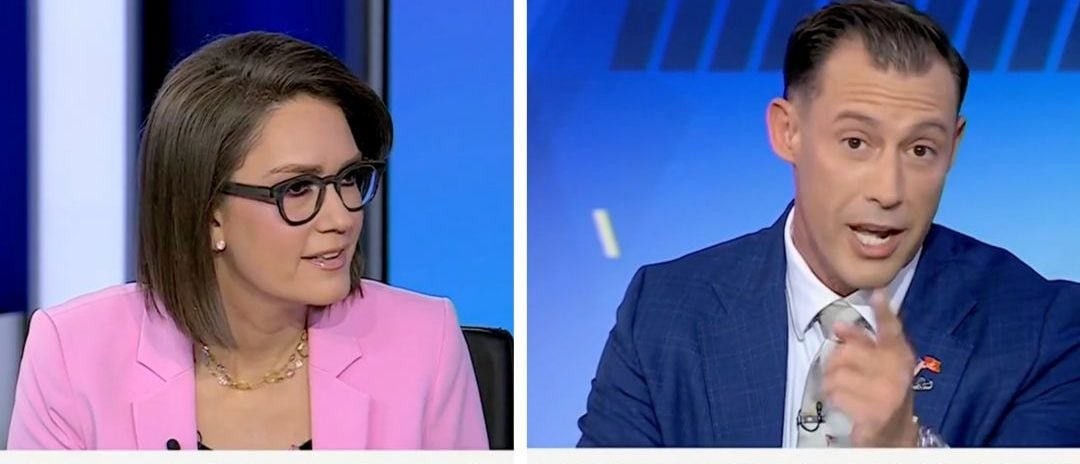Affordable housing, or the lack thereof, continues to be a major concern across the Valley. Last month on The Show, we talked about why it's so difficult to build new affordable housing in Arizona. But today we hear from someone working to build more viable housing.
Jacqueline Edwards is the director of the Maricopa County Department of Human Services. She says increasing the number of affordable housing has been a priority for the Board of Supervisors, especially since the pandemic began. She said the board has earmarked about $130 million from the American Rescue Plan Act to build more affordable housing, partnering with cities, towns, nonprofits and developers in the county to build more affordable housing. Construction is currently underway.
Edwards joined the show to talk more about this.
Katherine Davis-Young/KJZZ
A new home under construction in south Phoenix.
Mark Brody: Jacqueline, I would say that in your position, there are challenges and opportunities in working with different cities with different needs and desires, rather than doing the work that cities do themselves. It's no exaggeration.
Jacqueline Edwards: I attribute our success in this area to our partnerships with local jurisdictions, nonprofits, and developers, as we have partnered with local governments to support local housing needs. Also, what is right for one community may not be the best solution for another.
Brody: But does it make it a little more difficult? If you were just working for the city name in any city across the valley, you would have to make a plan for what kind of land is available, what the market is like, what the needs are. It's like having a lot of moving parts all at once in your role. And, as you say, what worked well in Phoenix may not work well in Peoria. So it seems like there's probably a lot of different things that you have to come up with at once.
Edwards: I think that's why we're so intentional and able to tailor our solutions to meet the needs of our community. And it's actually very exciting to work for the county and play this role. Because we can put so many different solutions on the table and adjust accordingly based on the needs of those communities and what local jurisdictions want. pursue.
Brody: What are some solutions that seem to have broader support across the Valley? You know, maybe things that could be worked on in multiple cities, no matter which city they're in. It does not matter.
Edwards: Renovating current properties is a large part of our portfolio to maintain affordable housing in our communities. And no matter where you live in Maricopa County, that really makes a difference because the housing stock is aging.
Brody: When we talk about things that may work in one place but not in another, are we primarily talking about things like density and high-rises, multi-family housing and buildings, duplexes and quad-pluses?
Edwards: So when we look at what's the best solution for one community may not be the best solution for another community, how we actually approach it. , an example is Gila Bend, where we put money into building housing in that community. Therefore, community land trusts are a very good solution because they allow people to buy affordable housing. And at the same time, the community land trust model keeps housing affordable in perpetuity. In other communities, we partner with the City of Phoenix on permanent support for multifamily housing. That's what's needed in that community because people are trying to focus on housing. So each community's needs are a little different, but not so much that it won't work elsewhere. It's really about intentionality and focusing solutions on the needs of that city or town.
Brody: of course. So there's obviously a lot of discussion and attention around the need for more affordable housing, workforce housing, affordable housing. And, you know, over the last few months, there's been a lot of discussion about the role of cities in terms of planning regulations and casino licensing and things like that. I'd like to know from your perspective, the problem with something that might work for the city, and maybe even the city thinks it's a good idea, but the rules and regulations for that particular community aren't appropriate. Have you ever encountered that? Please forgive me.
Edwards: So the projects that we invest in, we usually come in when the zoning is already in place, when the planning is already advanced, and in many cases we actually provide the gap funding or the last-minute funds to do the project. Become the subject. bear fruit.
Brody: What do you think it will take for this region to actually have the amount of housing and affordable housing it needs? I'm always making sure I'm there and wondering what it takes to get where I need to be.
Edwards: It requires partnerships, partnerships across all levels of government. So from the federal government to state to county to local nonprofit partnerships to developer partnerships. And in all of these partnerships, we must not forget our partnerships with community members. This will help members understand what units are needed in the community and who it actually applies to.
Brody: Yeah, and it seems to me that you have kind of a unique perspective working for the county. As we discussed, you're working with many different cities in the region, and you're not just working in one of those cities. I think you can look at this county in this area a little bit more broadly, but are there any particular areas that seem to be doing better than others or areas that are more likely to get that amount of money? Perhaps The amount of affordable workforce housing they need compared to the rest of the Valley.
Edwards: In fact, what we've seen with our American Rescue Plan Act funding investments is the expansion of affordable workforce housing across Maricopa County. Therefore, regions, whether on the outskirts of cities or in the countryside, have made great strides in expanding such opportunities for members of their communities. Again, it is partnerships at all levels that make Maricopa County a leading region for expanding much-needed housing at all income levels in our communities.
Brody: Do you think that trajectory is sustainable, especially given that the federal funding is a one-time thing? Once it disappears, it never comes back.
Edwards: In short, the escalation in investments over the past few years is truly a once-in-a-lifetime opportunity. And the Maricopa County Board of Supervisors has decided to invest that money to expand affordable housing. As I said earlier, it's a once-in-a-lifetime investment. But what we're doing here in Maricopa County, albeit on a smaller scale in nature, is that the funding that we're receiving, especially the federal government for affordable housing, as we move forward. It's about being able to invest very intentionally.
Brody: Yes, I understand. That's Maricopa County Human Services Director Jacqueline Edwards. Jacqueline, thank you for your time. I appreciate it
Edwards: Thank you so much, Mark.
More stories from KJZZ
















